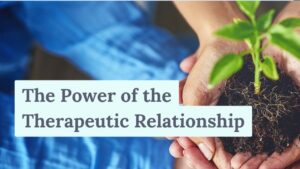Our Wellness Blog
At BasePoint Academy we are committed to going above and beyond for our patients as well as the communities in which we serve. As part of that ongoing effort we feel that providing free information on teen psychiatry, counseling and wellness is an important part of that commitment, particularly in an age where everything is digestible on the internet.
Share Our Blog With Someone It Might Help!
Our blog is here to keep you up to date on the most recent developments in mental health. While our blog is not written by a doctor and should not be taken as medical advice, it is here to provide useful information to those affected by mental health problems either directly or indirectly.

Client Advocacy at BasePoint Academy
BasePoint Academy has created a dynamic program to address the multifaceted and complex challenges teenagers face today. Families who discover that their teen is misusing

Young People May Be More Vulnerable to Nicotine Addiction Than the Middle Aged
Cigarette smoking during childhood and adolescence “causes significant health problems among young people, including an increase in the number and severity of respiratory illnesses, decreased

BasePoint Expands Access to Mental Healthcare With New Location in Frisco, TX
This article mentions suicide. If you or someone you know is in crisis, please call, text, or chat with the Suicide and Crisis Lifeline at

Improving Mental Health Services in Texas
This article mentions suicide. If you or someone you know is in crisis, please call, text, or chat with the Suicide and Crisis Lifeline at

BreakThrough Happens Here
Young people moving from adolescence into adulthood are experiencing an important transitional stage of their life. Many encounter new challenges such as moving away from

How Medications Support Mental Health Treatment
Psychiatric medications influence the brain chemicals that regulate emotions and thought patterns. “They’re usually more effective when combined with psychotherapy,” explains a webpage from the

Group Dynamics and Peer Support in Therapy
Group therapy is an effective, evidence-based treatment option for teenagers with mental health conditions and substance use disorders. When teenagers are struggling, group therapy can

Taking the Time to Treat Teen Mental Health Issues
Mental health challenges are now the leading cause of disability and poor life outcomes in young Americans. Unfortunately, in recent years, the United States has

Preparing Young Adults for Life After Treatment
Taking the first step toward mental health treatment can be an overwhelming and uncertain journey for young adults. Questions of “Will this work?” or “What

An Exceptional Treatment Team Makes for Exceptional Patient Care
This article mentions suicide. If you or someone you know is in crisis, please call, text, or chat with the Suicide and Crisis Lifeline at

The Power of the Therapeutic Relationship
“Better relationships with patients lead to better outcomes,” wrote Tori DeAngelis in 2019 on the American Psychological Association (APA) website. The quality of the therapeutic

BreakThrough by BasePoint Empowerment Curriculum
BreakThrough by BasePoint’s empowerment curriculum is a novel approach developed with the program’s young adult clients in mind. It is an integral part of the


